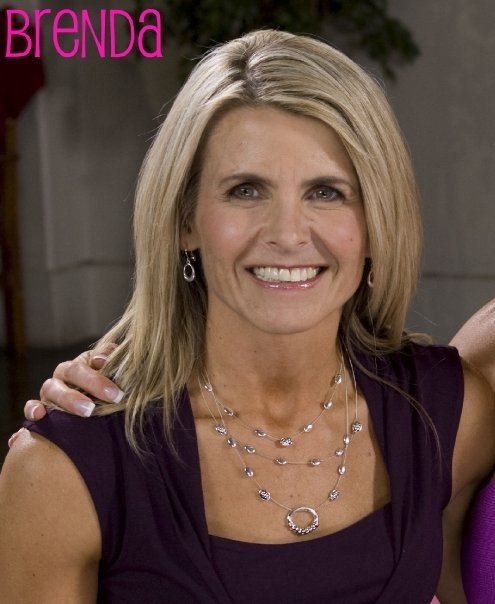 | Dennis Meyer/Daily News
Brenda Herrod of Norfolk teaches a class on human reproduction while also working to earn her master’s degree in nursing from the University of Nebraska Medical Center in Omaha. Teaching is one of the options available to nurses with advanced degrees. | |
By SHERYL SCHMECKPEPER
Rhonda Pettit thought she would be done with school when she earned her registered nursing degree in 2003.
But after working at the Norfolk Veterans Home for several years, she recognized the need for nurses who could provide more specialized care than an RN. That's why she began the process of earning her nurse practitioner degree with an emphasis in geriatrics.
The degree, she said, will allow her to provide primary health care - including diagnosing illnesses and prescribing medications - that registered nurses aren't able to.
Pettit was a student at Creighton High School when she realized she wanted to be a nurse. She earned her licensed practical nursing degree in 1986 and worked in that field until earning her RN degree.
Now, she spends much of her time taking classes - either online or at the University of Nebraska Medical Center campus in Omaha - while continuing to work part time at the veterans home and taking care of her family, which includes her husband and their three sons.
"It's hard," Pettit said. "It's time away from the boys, but I love learning."
Nurses like Pettit who want to earn advanced practice degrees not only have a wider variety of career options available then ever before, but they also have the ability to impact their community more than ever before.
That's a big part of the reason by the proposed Northern Division School of Nursing in Norfolk has drawn the support from so many. The advantages it will bring to the area are numerous, including providing more nurses with advanced degrees who, as a result, can fill many more health-care roles.
For example, they are are needed to teach at nursing schools, said Dr. Virginia Tilden, dean of the med center's College of Nursing.
Plus, nurse practitioners can diagnose illnesses and prescribe medications - as long as they collaborate with a physician. They also are able to open and maintain their own practices.
By working with a physician, they extend the local medical team's ability to serve patients, which not only benefits patients, but also helps the community by adding more people to the local workforce, Tilden said.
Julie Schlomer wasn't necessarily thinking about expanding Norfolk's workforce when she decided to obtain her nurse practitioner's degree.
Instead, she felt the desire to specialize in women's health and work in a clinic instead of a hospital.
"I started seeing two nurse practitioners and thought, 'Wow, I can do this,' " she said.
She was employed as a nurse in Lincoln at the time and decided to enroll in UNMC, where she earned her advanced degree. She subsequently moved to Norfolk and has been employed at Midwest OB-GYN for 10 years.
Now, Schlomer can provide full medical care for women of any age.
Although Schlomer collaborates with a physician, she practices under her own license. And even though her collaborating doctor - Keith Vrbicky - practices in the same clinic, that doesn't have to be the case. A nurse practitioner just needs a doctor he or she can consult with if necessary, Schlomer said.
It means they are an excellent option for small towns that are struggling to keep their health care providers, Tilden said.
Clinical nurse specialists add another element to the community as they can manage and run physicians specialty clinics, such as oncology, cardiology and neurology.
The options for nurses and the benefits for communities continue.
Nurses who earn their doctorate degrees can also go into research, Tilden said, and often they can study issues that directly impact patients and their families.
And they don't have to move to Omaha or Lincoln to do their research.
"When they are in the community . . . they are ideally situated to answer the questions of the rural area," Tilden said.
Dr. Karen Schumacher agrees.
The UNMC associate professor and her research team are currently studying the way family caregivers provide care for members of their family who have cancer. Research is also being done on topics such as ways to improve lives of women who live in rural areas who have diabetes, as well as symptoms management for people with heart disease.
The number of options available in nursing is impressive, said Brenda Herrod of Norfolk.
Like Schlomer, Herrod was working as a nurse when she decided to go back to school to earn her master's degree. Now, she teaches at Northeast Community College and takes classes through UNMC, with hopes of graduating in next spring.
While many of her classes are offered online, Herrod does have to travel to Omaha occasionally for face-to-face classes with fellow students and faculty.
Herrod hasn't decided if she will continue teaching or work as a nurse practitioner after she graduates.
"I really love teaching OB nursing," she said. "I also enjoy working with students from such diverse backgrounds. At least I have the option of doing either or both (teaching or working as a nurse practitioner)."
Having options is an advantage for people who chose the nursing field.
"There are so many opportunities . . . it's exciting," Herrod said.
* * * | |


No comments:
Post a Comment